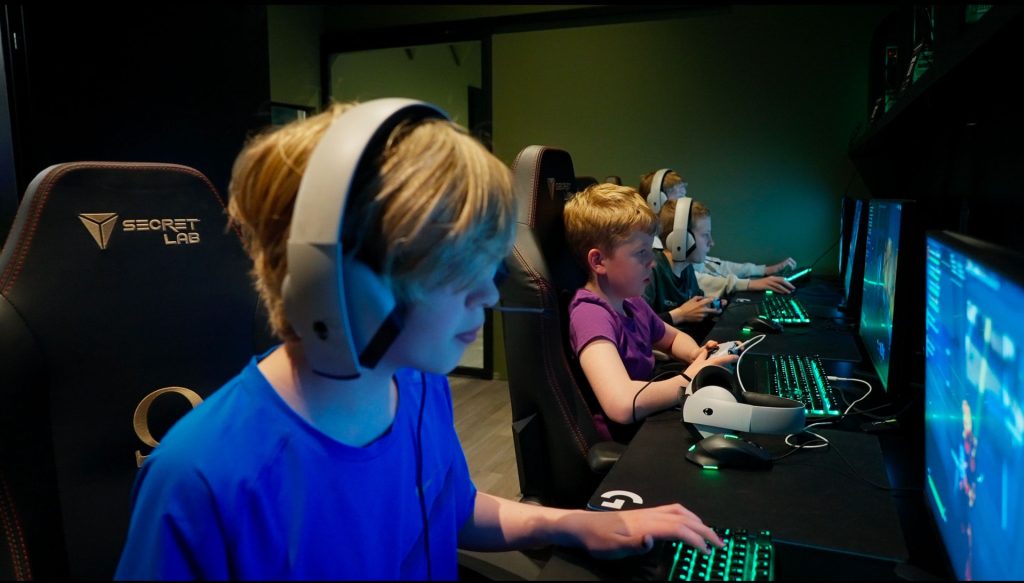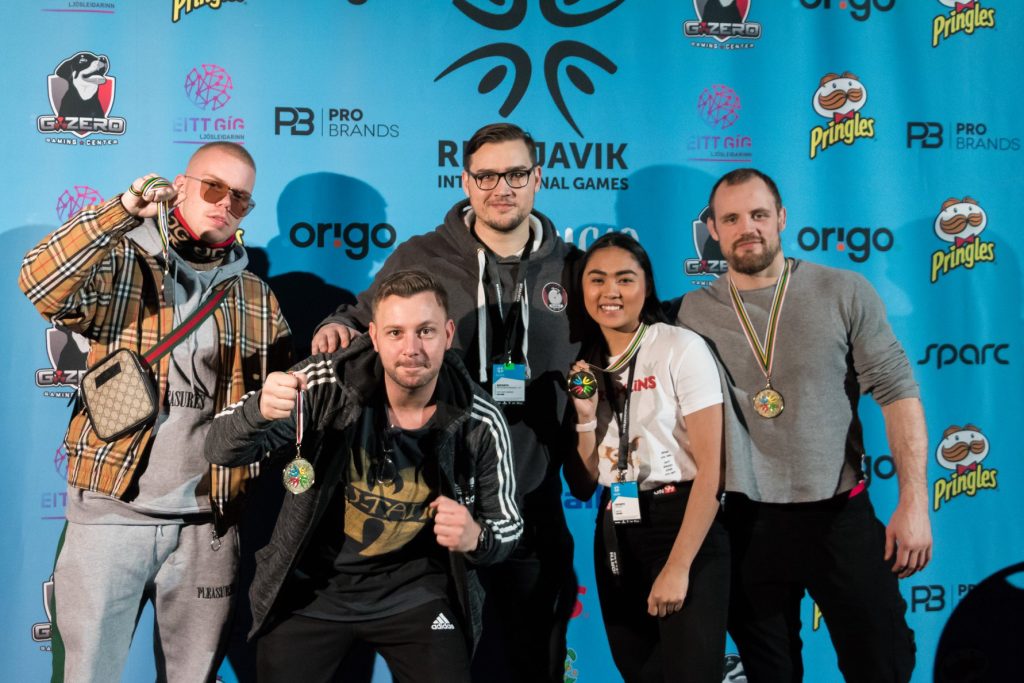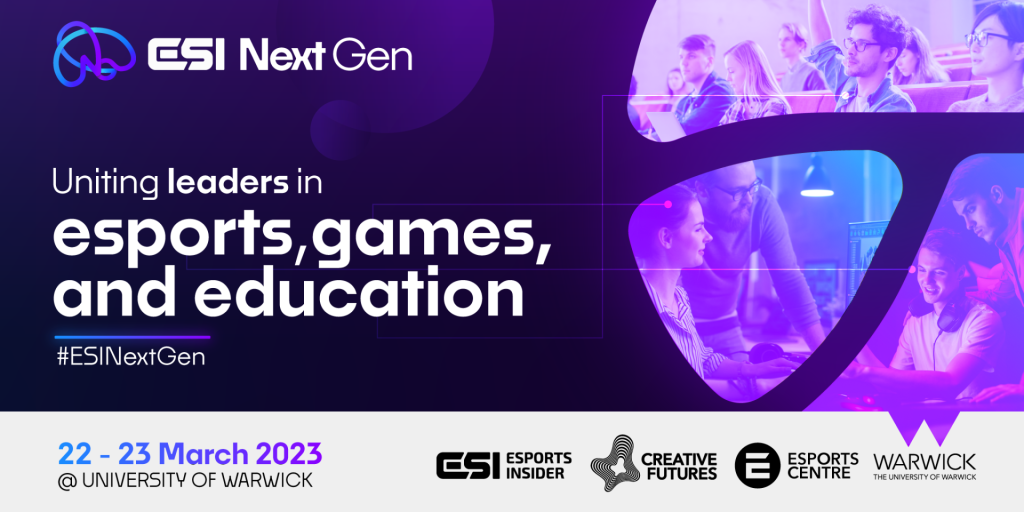
On the Southwestern coast of Iceland, dozens of children in the tiny town of Akranes — home to just 7,411 people — flock to the Íþróttabandalag Akraness sports club to train esports.
At least 80 kids show up multiple times a week, all of whom are paying customers. The initiative is so popular there is already a waiting list, despite launching less than two months ago.
The Esports Coaching Academy, founded by the team behind the Icelandic Esports Association (IEA), currently brings esports coaching to about 4% of all kids in Iceland. Coaching is not delivered via an online portal — the company is hands-on. Its prided method is the result of several years of elbow grease in the tiny country that consistently outperforms what it should be capable of. It is set to expand across Europe and North America soon.
Thanks to the people behind the Esports Coaching Academy, when it comes to esports the ambition is the same: Iceland will punch above its weight.
How the Esports Coaching Academy works
The Esports Coaching Academy — or ECA — can be broken into two chunks: the training of esports coaches and esports coaching itself.
Would-be coaches first gain access to ECA’s education portal, where they gain official certification as they complete courses. This will culminate in a final assessment, which will determine whether the person becomes a qualified esports coach. They can then use ECA’s portal to plan sessions and make courses to deliver to young people.
Unlike the training of coaches, ECA does not believe coaching itself can be done online.
“We promote in-person classes over everything,” Olafur Steinarsson, Co-founder at Esports Coaching Academy, told Esports Insider. Steinarsson is the Founder and former Chairman of the Icelandic Esports Association and was central to building out Iceland’s esports capabilities.
“We’re not looking to create yet another digital tool that gives kids one more password to manage, and keeps them more tethered to a computer,” he said. “Our goal is to create actual people that mediate that knowledge, that can have a personal relationship and connection with the players that they are training, and therefore, affect a lot of change.”

The ECA business case
If in-person coaching is paramount, how is it achieved at scale? Esports Coaching Academy’s sell to its partners — in other words, the facilities that implement its method — is instant profitability.
Right now, 20 youth and education facilities in Iceland use ECA’s method, which Steinarsson began developing at the IEA. Between 3000 to 5000 kids are currently coached weekly according to the ECA’s principles.
ECA’s service is plugged directly into existing infrastructure. For example, the company might partner with a local youth club, which with ECA’s help starts an esports training society. Parents pay for every session their child attends. Besides an initial investment into gaming equipment, ECA-affiliated facilities are set up for profitability straight away if enough kids sign up — which has been the ECA’s experience so far.
“The way the model is set up, you can start a club and start operating profitably from month one,” said Haraldur Hugosson, CEO and Co-founder of the Esports Coaching Academy. Hugosson studied economics in Iceland before completing his master’s at Copenhagen Business School.
So far, ECA has raised $750,000 (~£622,147), and plans to raise more. Its service could, in time, carve out economic sustainability at the grassroots level of esports, according to Hugosson.
“We believe that we have a tool that enables profitable grassroots operations that can funnel money into the ecosystem in a way that … doesn’t exist today, by enabling our partners to run profitable, quality esports programmes without a huge upfront investment,” he said. Cutting the cost of creating and maintaining programmes and content over time means our partners can focus on working with the kids and their parents. It turns out that parents will happily pay for programmes that prioritise their kids’ wellbeing and happiness.”

The future of ECA
ECA wants to be the leading voice in shaping youth esports coaching worldwide. It promotes a specific way to do youth esports, according to the company, that has been shown to engage and retain players, all while improving their in-game skill — and lives overall.
“I don’t feel like there is a governing body anywhere that represents a successful youth grassroots esports scene to the point they can actually say that they are an authority in this space,” Steinarsson said. “ECA is probably among the front runners in being able to do that.”
Kids trained by ECA-qualified coaches are taught to communicate properly; to prepare well, mentally and physically; to not swear; to respect teammates and opponents; to eat and drink things that are healthy so that performance is optimal; and much more. The ECA believes its method can help enhance the image of gaming in the eyes of the uninitiated, from parents to government regulators.
“I had a very honest conversation with all the kids at training,” Steinarsson said, about a course he once ran in Iceland. “I said, ‘You guys are the ambassadors for your gaming hobby at home. The way you behave, and the way you treat gaming at home, will impact how much you get to play.’
“I’m like, ‘Just think about this from a parent’s perspective. I’m your parent, I love you. I want the best for you. But you’re always playing video games, and the only thing that I see or hear is you alone in your room, yelling, cursing and being in a bad mood.’ Do I believe that this is healthy and good for you? And am I likely to support you in doing this more? And all the kids went, ‘Ah, I never thought of it like that.’”
Already, the ECA has affected change in households across Iceland. Just a year old, the company hopes to transform grassroots esports.
Supported by Esports Coaching Academy


